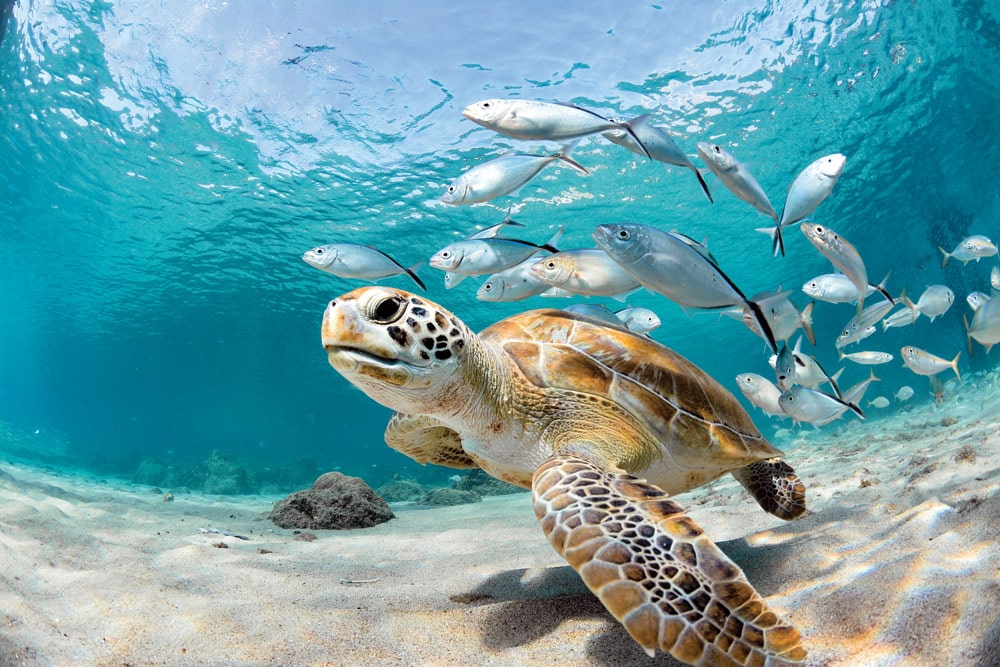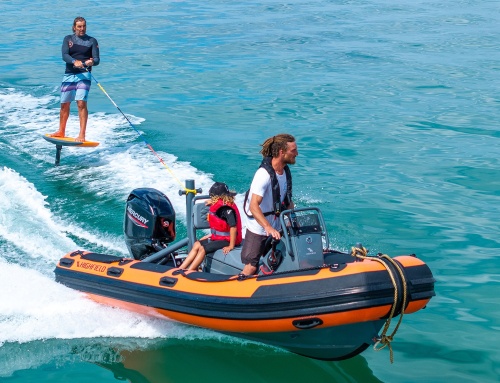Giovanni Fasanelli investigates the ambitious deep-sea project Ocean Census and how it’s set to uncover a veritable ‘treasure trove’ of medicinal and other priceless resources held deep within our planet’s oceans – resources we need to save …
Imagine there existed a vast cave system that held within it many chambers all containing immeasurably valuable treasure such as keys to unlock treatments for cancer, leukaemia, HIV and many other human diseases. The cave was also filled with delicious food and clean air to breathe. It was a place that actively healed, nourished and sustained life. Would you not want to explore every part of this magical realm, uncovering one gift after another? There is no doubt that such a place would represent the sacred heart of our people, worthy of extreme care and protection for the value it brought. Well, our ocean is this bounteous labyrinth, which, for the most part, remains a tantalising mystery to us all and certainly is not treated like the sacred heart of our species, but rather a dumping ground for everything unwanted. The tragedy of this reality cuts deeper than the ocean itself.
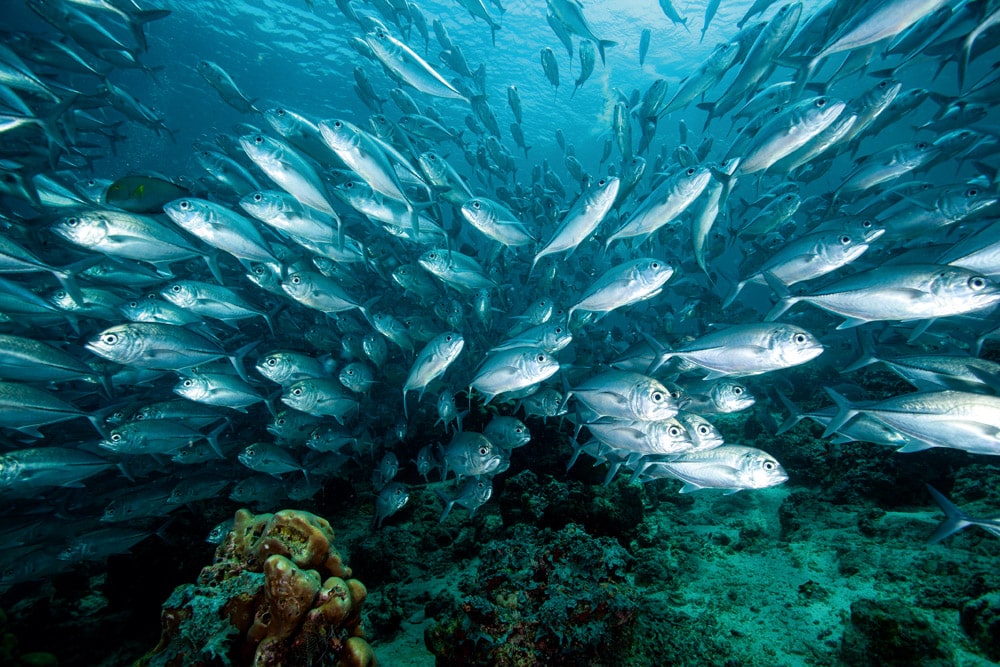
iStock- © LuffyKun
The wonder of life
‘We need people to fall in love with the majesty and the wonder of ocean life if we are going to have any chance of protecting it,’ declares Oliver Steeds, director of the ambitious new deep-sea project Ocean Census, which aims to seek and identify a minimum of 100,000 new species in its first decade of operation. As a submersible pilot and marine biologist myself, I can personally attest to the urgent need for such an endeavour, one that can shine a giant light into the darkness of the unknown – that expansive cave of treasure. We cannot hope to buffer ourselves from great suffering and widespread extinctions if we do not have a clear picture of how the different components of our planet interact and which parts are critical to preserve if we are to keep the ship – earth’s biosphere – afloat. To date, an estimated 1.2 million species of plants, animals and fungi have been described – many of which, incidentally, are insects – yet scientists estimate there to be a further seven million or more out there living in total obscurity. Two million of these are believed to be swimming in our oceans, holding the answers to questions about our very own survival. By way of one example out of dozens, a 2020 research paper published in the Journal of Natural Products highlighted the efficacy of a sponge-derived chemical, manzamine A, in the fight against cervical cancer, the fourth-most common cancer in women. ‘The preservation of species diversity is extremely important, as is the diversity of the chemicals they produce and the opportunities for treating cancer that they offer,’ explained Mark T. Hamann, a PhD professor in the Department of Drug Discovery and Biomedical Sciences at the Medical University of South Carolina. ‘If 50 years of climate change remains unchecked, the projections are that we may lose one-third of the global species diversity. And with that will go opportunities like this.’
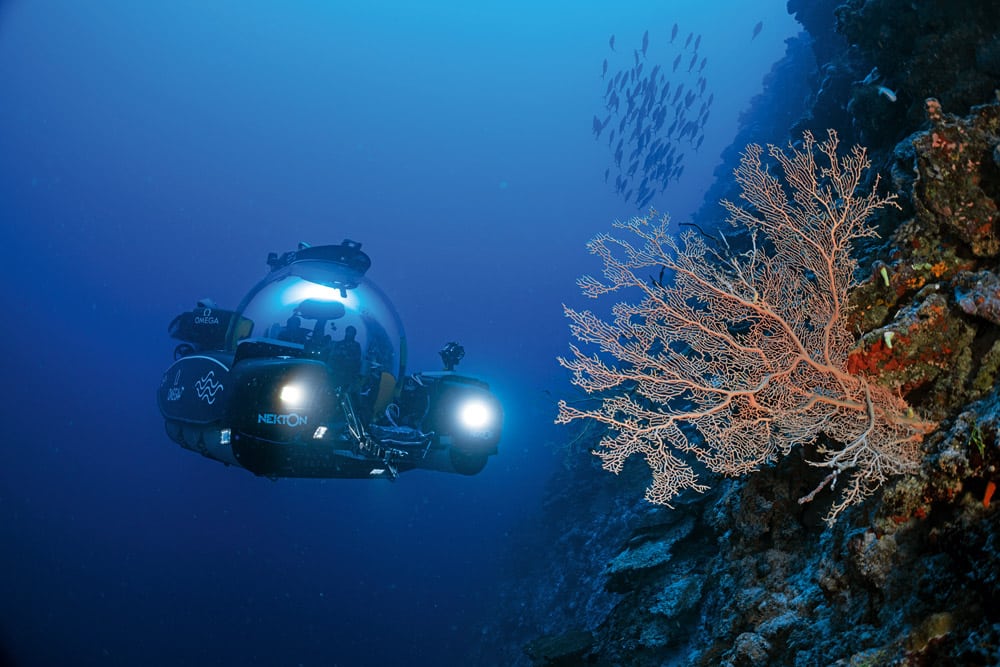
Scientists using deep sea submersibles examine the health of coral reefs off the coast of the Maldives in September 2022. Scientists project coral reefs to decline by a further 70% to 90% by 2030 if global warming reaches 1.5 degrees.
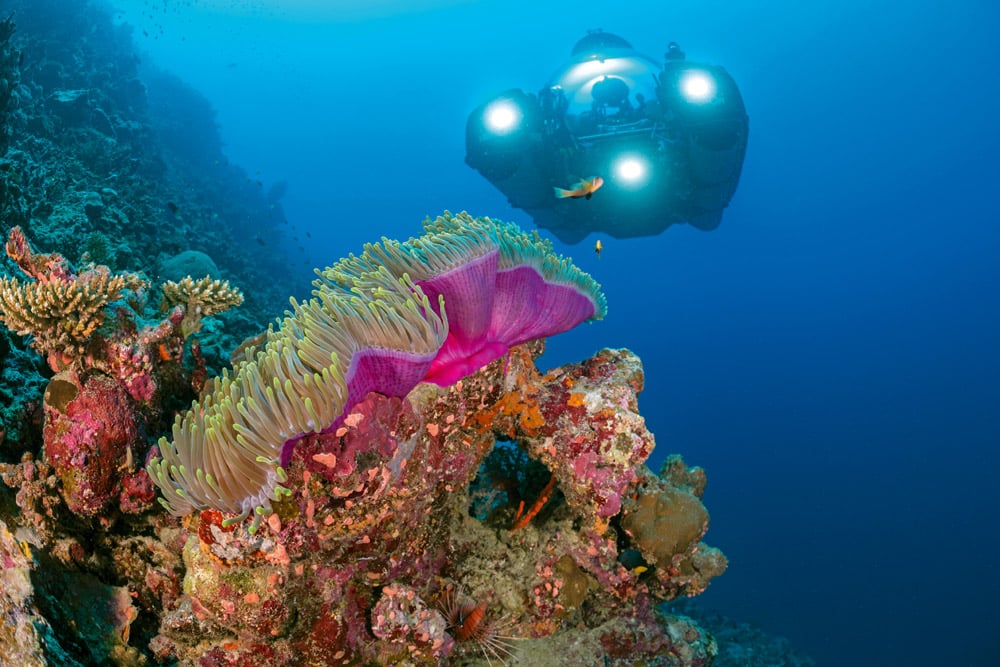
Scientists use a three-person submersible.
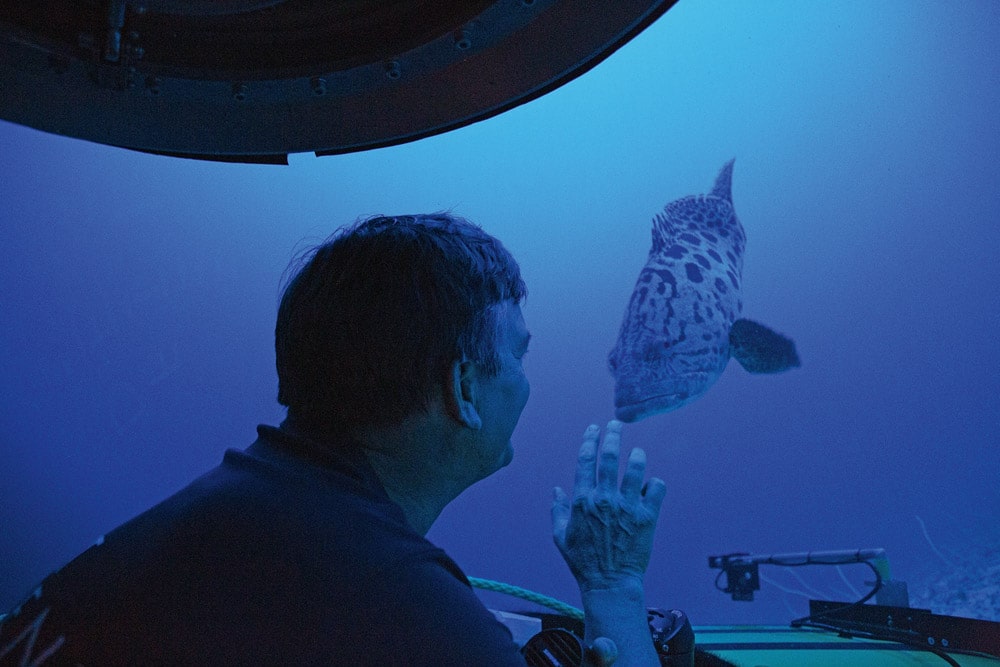
Submersible pilot Robert Carmichael had this up close and personal meeting with a Grouper fish off the coast of the Seychelles.
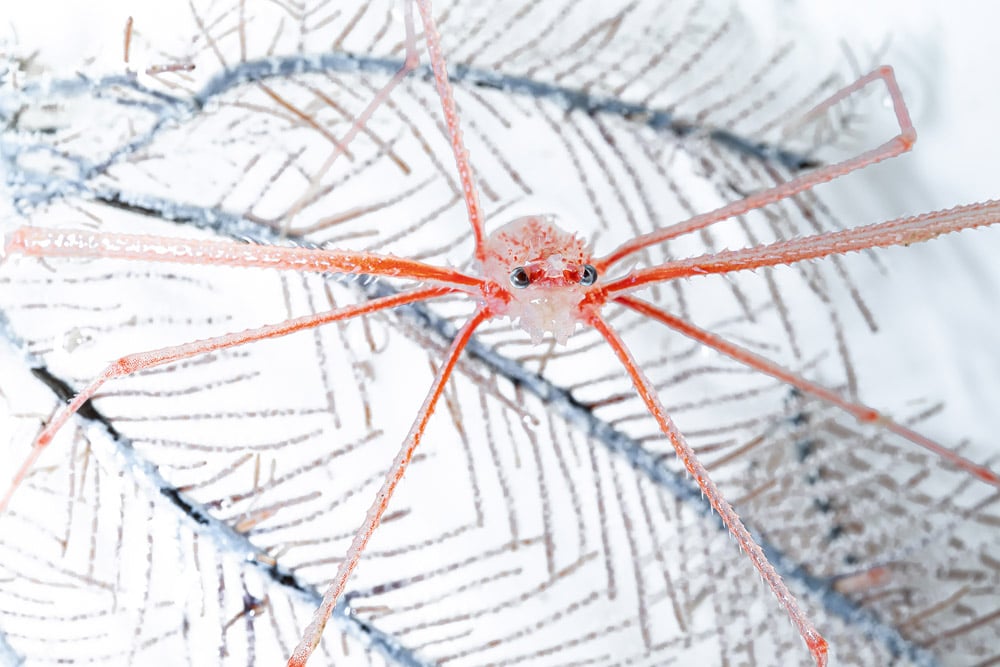
A squat lobster discovered living on a deep-sea coral.
Curing our ills
Not only could more cures for human diseases very well lie within the deep sea, but undoubtedly, too, a better understanding of how our lifeline, the ocean, is reacting to large-scale climate change impacts. By trawling for new species all over the world at all depths, a giant map can be created that can be used to best direct our global conservation efforts while finding new ways to better serve our planet and its inhabitants. For the past 200 years, projects like the Challenger Expedition (1872–1876, the birth of modern marine science) and the Census of Marine Life (2000–2010) have been plugging away at the same goal, but their task of describing new species, which used to take up to 20 years, can now be completed in mere weeks using exciting new advances in genome sequencing technology, digital imaging and machine learning.
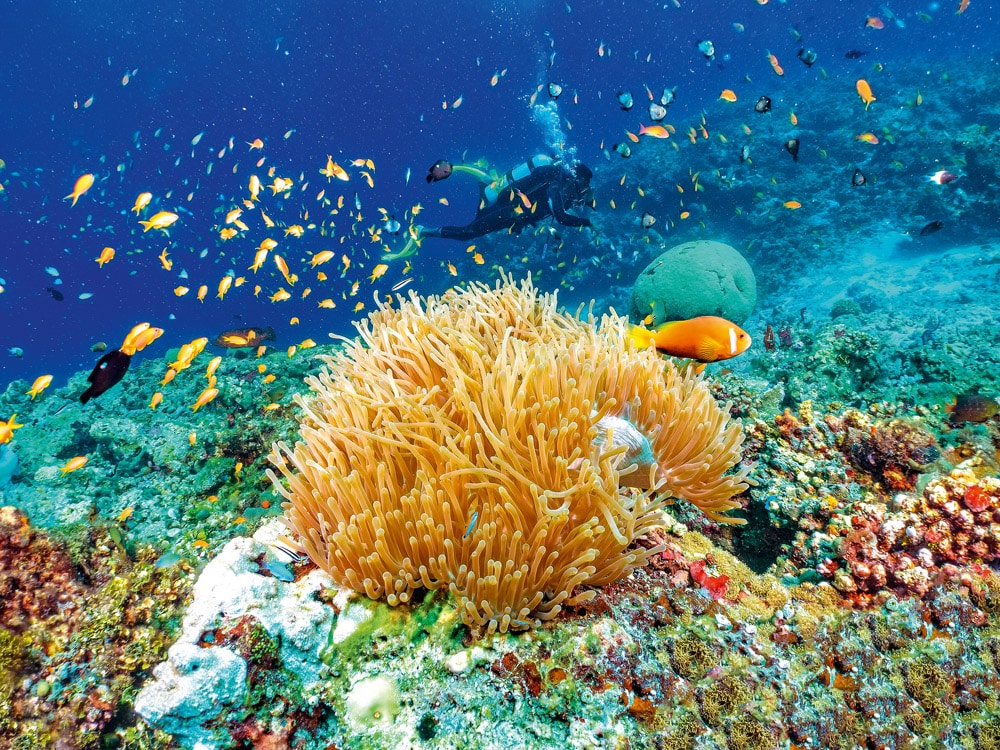
A beautiful coral reef with a sea anemone, colourful fish and diver in the Maldives iStock-SHansche
Ocean Census, the largest programme in history to discover life in our ocean, is unsurprisingly a collaborative project – an open network of science, business, media and civil society organisations. It is jointly founded by the Nippon Foundation – the largest non-profit foundation in Japan that focuses on philanthropy through social innovation – and Nekton, a UK-based marine science and conservation institute. ‘Ocean life makes all life on earth possible, but we can’t protect what we don’t know exists,’ explained Yohei Sasakawa, Chairman of the Nippon Foundation. ‘We have a race against time to discover ocean life before it is lost for generations to come.’
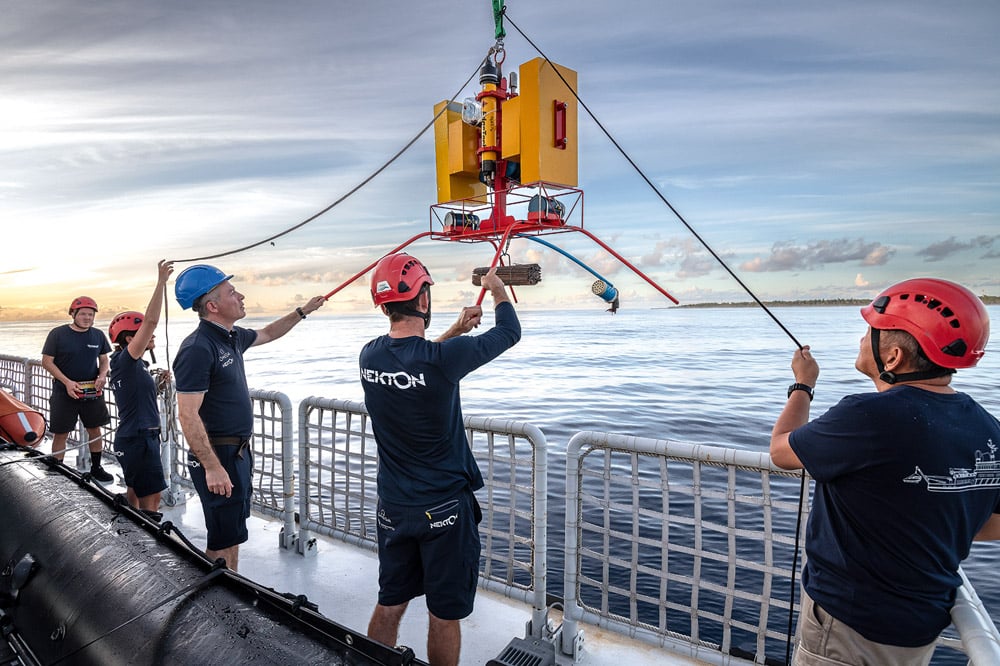
Scientists and crew aboard a research vessel prepare to drop bait cameras off the coast of the Maldives as part of a science mission to map, sample and gather data on ocean health.
In order to describe 100,000 new species, many expeditions will be launched using vessels from all industries, armed with the latest subsea technologies, including divers, submarines and deep-sea robots that will send their findings back to a network of inter-global taxonomists. The aggregated, open-sourced data will be added to an international network of data centres and made freely accessible to scientists, decision-makers and the public. ‘This new foundation of knowledge can help advance our understanding of fundamental science – oxygen production, carbon cycling, sustainable food production, the development of life on earth and even discoveries of new medicine and biotechnologies,’ revealed Mitsuyuki Unno, Executive Director of the Nippon Foundation. ‘Through advancing our understanding of the abundance, diversity and distribution of life in our oceans, we hope Ocean Census will catalyse global efforts to conserve our oceans.’
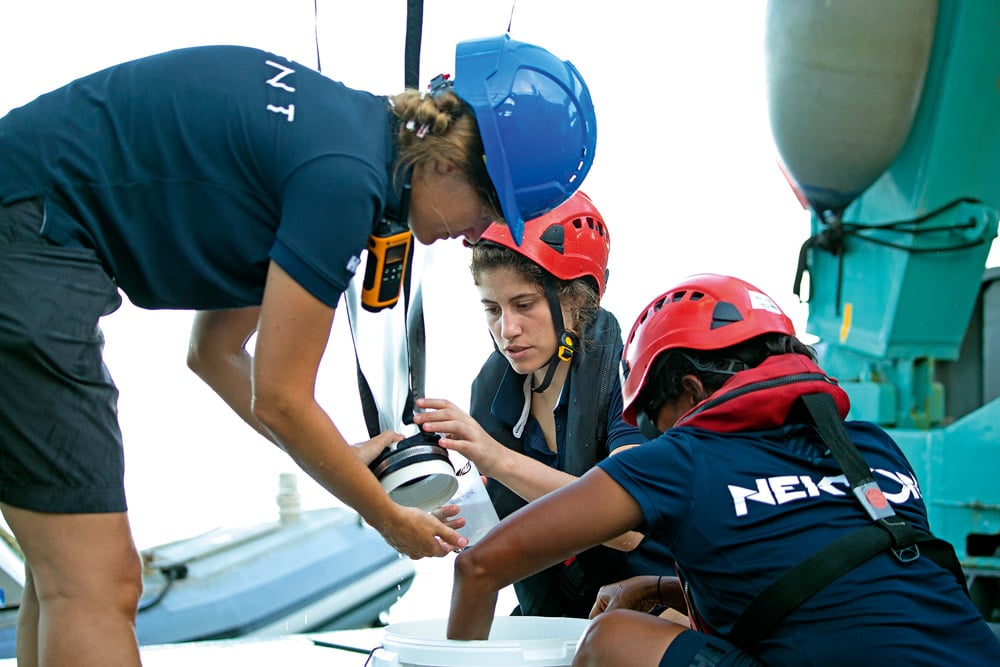
Scientists aboard a research vessel cleaning a net used to collect zooplankton.
The race is on
The barefaced truth of it all is that we are fast running out of time. For what? For keeping our planet functional. Termination is a difficult concept to accept, but it is critical that every person on earth understands that our resources are finite, and the biosphere is not indestructible. Once the ice melts and the shifting global climate systems gain momentum, once the oxygen-producing plankton can no longer survive and once the wild food runs out, we’ll all be having to find ways just to survive. Living systems will be unable to withstand the rapid destabilisation pressures, and the abundant life we have enjoyed up until now will be lost irrevocably. We all need to be working towards the goal of planetary conservation and restoration – now! As is emphasised by Oliver Steeds, we now have such a short window of opportunity left to us – perhaps only another 10 years – within which to act and turn the tide in our and the planet’s favour.
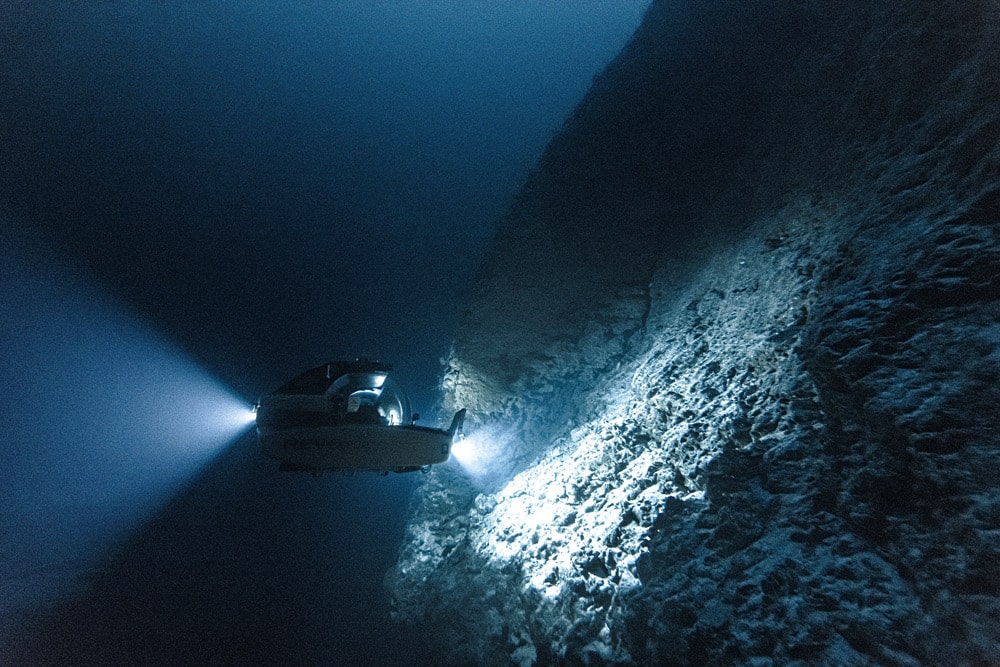
Scientists use a three-person submersible capable of diving deep into the global ocean in a quest to find new species.
There are some hopeful actions underway, of which Ocean Census is a superb example. Another is the 2022 Montreal Biodiversity Conference, which yielded an international agreement to protect 30% of land and oceans by 2030. Information gleaned through Ocean Census will be vital in ensuring that protected areas are optimally positioned to safeguard biodiversity. Big, bold and immediate steps are indeed being taken, but everyone needs to crusade for biodiversity preservation as something they can personally help with in their own small way. If we all hold ourselves accountable and act responsibly, our sacred home will play its part and reward us in the process – by healing, nourishing and sustaining us and our children long into the future.
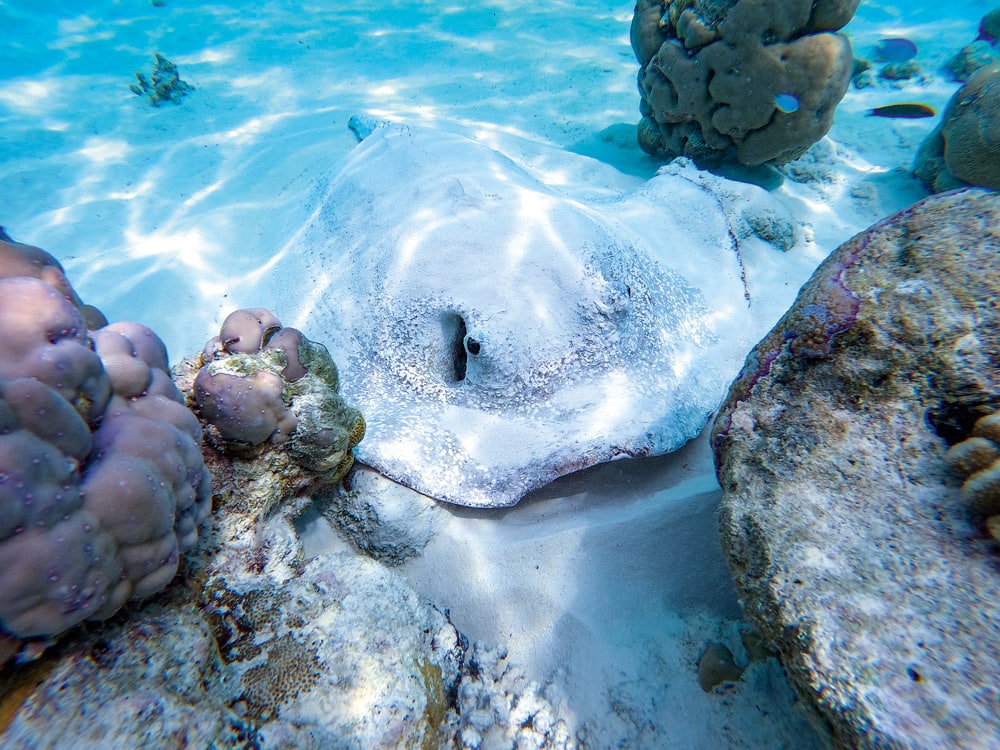
Large Stingray on the ocean floor resting near a coral reef. © iStock-Joanne Wastchak.
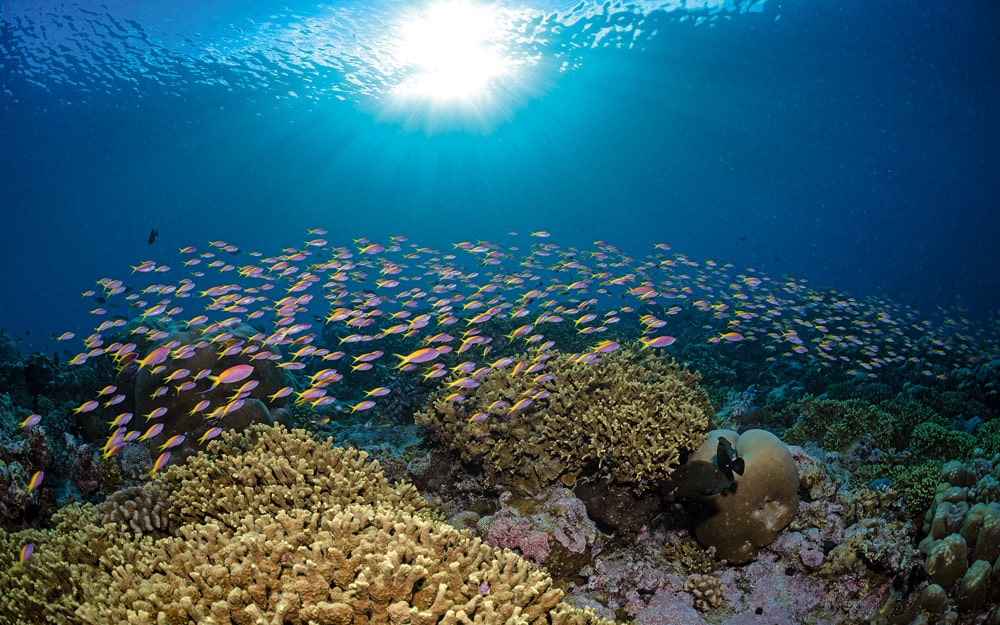
Sunlight reflects through the surface onto a coral reef in the Maldives. Scientists project coral reefs to decline by a further 70% to 90% by 2030 if global warming reaches 1.5 degrees.

